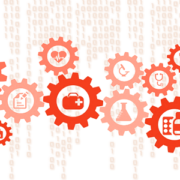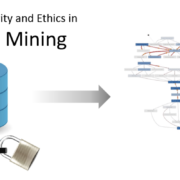How Healthcare Is Cracking Down on Data Privacy
The COVID-19 pandemic emerged more than a year ago, and come March, the United States will also pass the one-year anniversary of the novel coronavirus’ arrival in our nation. Hospitals have become overrun with patients, having to adjust for space even when they’re at full capacity. The colder months are bringing on more infections as well.
With such high demands on health care providers, technology has been an area of assistance through it all. Telehealth in particular allows patients to stay at home and receive care without putting themselves at risk. However, security and privacy concerns accompany this reliance on technology.
The digital world can be dangerous. Hacks and breaches can occur at any time. The novel coronavirus pandemic has accelerated these attacks. Through August 2020 alone, 305 healthcare data breaches occurred — which is up from 2019’s 136 breaches in the same time frame. These vulnerabilities cannot continue to occur, since health care facilities hold vital patient information like Social Security numbers, medical records and financial information.
The industry is resilient, though. Adapting to new norms and protocols is part of the healthcare field. With the new focus on technology to connect patients and providers through the ongoing pandemic, practices have been cracking down on keeping data safe and secure.
Health Care Industry Adapts
Data presents itself in the health care industry in several ways. Standard patient data includes personal information about health history, relationships and private matters. Other forms of data may include connections from medical devices that use the internet — something like a digital blood pressure monitor may transmit data. Then, providers must store and send this data at various times.
The Health Insurance Portability and Accountability Act sets forth two main regulations facilities must follow. The security rule mandates that the use of all electronic personal health data must be stable in any form or use. The privacy rule indicates that all medical records, insurance information and private data must have the best protection.
In 2017, 477 breaches affected about 5.6 million patient records, breaching what should have been secure HIPAA data. To uphold HIPAA regulations and prevent breaches like these from happening, health care providers have taken several steps.
First, education is crucial. Bringing all staff in on up-to-date privacy protocols will go a long way. For instance, using encryption on mobile devices, backing up all data, creating strong passwords and consistently patching and updating the systems and firewalls are critical for staff to understand.
Access is another form of protection. Multi-factor authentication, like passwords, keys, PINs and biometrics, will keep systems secure and only give access to those who need it the most. Then, facilities can monitor data at all times — unauthorized access, emails and transfers. If something suspicious happens, IT departments can see it in real time and flag it or stop it.
Last, consistent evaluations are more necessary than ever. Health care facilities will want to make sure they comply with industry and privacy requirements, and that staff members know the protocols to follow. Then, data privacy remains a top priority.
The Lasting Impact
Vaccines are slowly rolling out and becoming more available to residents across the world. However, even with a vaccine, global spread will slow gradually, especially in areas where cases are high and rising. For instance, the United States cases are still rising and breaking records daily.
Data will continue to be a central focus throughout the pandemic and afterward. Right now, specifically, with big tech companies facing scrutiny and investigations for privacy faults, data is at the forefront of Americans’ minds. Health care companies must excel in ways that big tech has not.
One sign of progress is new mental health startups popping up that focus on virtual dynamics. With services like Real Therapy or Two Chairs, you can make a virtual appointment. Since privacy is already an inherent part of therapy, data privacy will be critical to integrate into these business models.
Getting Ahead of the Curve
While the pandemic may seem uncontrollable at times, health care facilities have more agency. They can smooth relationships with patients and operate more efficiently with stricter data privacy protocols in place. In an uncertain time, ensuring data security is one of the best things health care providers can do.








Leave a Reply
Want to join the discussion?Feel free to contribute!